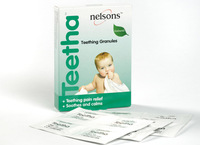Bringing baby home
 With your first baby everything that happens from their first cry to their first nappy change can be new, unexpected, exciting and (sometimes) overwhelming. Here are some surprises you may encounter in the first twelve weeks and how to deal with them.
With your first baby everything that happens from their first cry to their first nappy change can be new, unexpected, exciting and (sometimes) overwhelming. Here are some surprises you may encounter in the first twelve weeks and how to deal with them.Weeks 1 and 2
Your experience of the first week will depend a lot on whether you have a natural birth or a C section. It is usual to be in hospital for longer after a C section but that will depend on your personal set of circumstances.
Breastfeeding usually starts within one hour of birth, expect to repeat this eight to twelve times a day. If you are not breast feeding, your baby will likely be drinking a milk based formula. Don’t be surprised if baby loses weight as it is normal for babies to lose between five and eight percent of their body weight during their first week.
You may experience haemorrhoids after giving birth. H+care soothing hygienic wipes can gently cleanse and soothe the area, and can be used as a moist alternative to regular toilet paper which can make the discomfort worse.
Be prepared for your newborn’s first nappy! Expect large, black meconium stools for the first few days.
Iron stores can be depleted following blood loss during childbirth. Top up your iron levels by taking a supplement such as Spatone Natural Spa water, without the commonly associated side effects of iron supplements, such as constipation.
Most parents are surprised just how much their newborn sleeps! The average baby will sleep for approximately 16 hours a day split into short naps of between two and five hours. Remember to always put your baby to sleep on their back.
Weeks 3 and 4
Another surprise is how much your baby will cry. The average baby cries for two to three hours a day. Especially once they reach three weeks old. Crying is the way your baby communicates. It can mean ‘I am hungry, tired, wet or in pain’. Try and listen to the subtle differences between your babies cries to identify what they need.
If your baby is crying for no obvious reason, at a certain time of day and for a few hours it could be a sign of colic. There is no cure for colic but try to comfort you baby by rocking and singing to them.
Your baby’s umbilical cord has probably detached by now so you can give your baby their first real bath! Your baby will not have much head control so bathe them in a small baby tub or basin where you can support the head and neck properly. Remember to only use an inch or two of tepid water and to never leave them unattended, even for a second.
Weeks 5 and 6
Your baby is now officially an infant! You will need to make sure your home is properly baby-proofed as they will be more inclined to reach out for objects.
Your baby should now be a few pounds heavier than their birth weight. Every baby is different and your health visitor or parenting clinic will be keeping track of your babies weight and length to check they are within the correct parameters.
Weeks 7 and 8
The end of the second month is a good time to start introducing your baby to their tummy! Babies spend a lot of time on their backs and this can cause posture issues. Begin putting your baby on their stomach for short periods of time whilst they are awake.
Your baby has probably moved onto their own regular feeding schedule by now and at this age they are probably eating every two to four hours with one longer gap of around four to six hours when they are sleeping.
Weeks 9 and 10
By the third month your baby is probably getting tired of simply lying around all the time. Now that they have better control, they are more likely to want to be in an upright position. You may wish to consider baby products which help them to be entertained in an upright position.
Most babies do not sleep though the night until they hit three or four months. At ten weeks most babies are still waking up once in the night. If your baby is waking up numerous times then try sticking to a regular feeding, nap and bedtime routine. Also make sure you put your baby to bed whilst they are sleepy but not asleep so they become used to falling asleep in their crib.
Weeks 11 and 12
A lot begins to happen around this time. Your baby may begin to roll over, bear weight on their legs and grasp at a rattle. They will also be able to recognise your face and possibly your voice too!
Typically teeth begin to appear from twelve weeks onwards. Symptoms can include sore and swollen inflamed gums, flushed cheeks and disrupted sleep patterns can be signs of teething. Try giving them something to chew on such as a teething ring or a teething remedy such as Nelsons Teetha, a homeopathic remedy with camomilla 6c, specially designed for the soothing and calming relief of the symptoms of teething. It is ready-dosed in a convenient granule format that simply dissolves in a baby’s mouth.
For more information visit nelsons.net.

